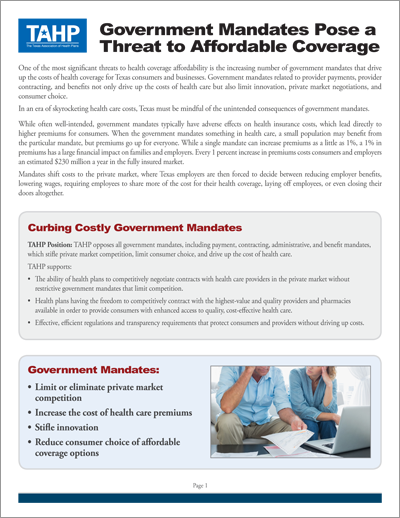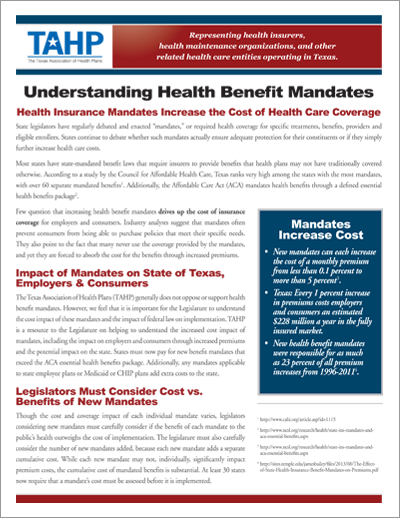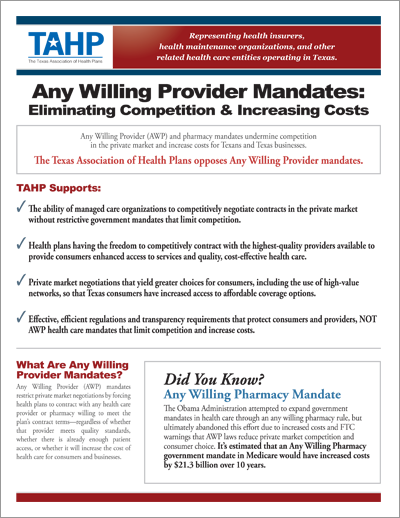Government Mandates
A Threat to Affordable Health Coverage

One of the most significant threats to health coverage affordability is the increasing number of government mandates that drive up the costs of health coverage for Texas consumers and businesses. Government mandates related to provider payments, provider contracting, and benefits not only drive up the costs of health care but also limit innovation, private market negotiations, and consumer choice.
In an era of skyrocketing health care costs, Texas must be mindful of the unintended consequences of government mandates.
While often well-intended, government mandates typically have adverse effects on health insurance costs, which lead directly to higher premiums for consumers. When the government mandates something in health care, a small population may benefit from the particular mandate, but premiums go up for everyone. While a single mandate can increase premiums as a little as 1%, a 1% increase in premiums has a large financial impact on families and employers. Every 1 percent increase in premiums costs consumers and employers an estimated $230 million a year in the fully insured market.
Mandates shift costs to the private market, where Texas employers are then forced to decide between reducing employer benefits, lowering wages, requiring employees to share more of the cost for their health coverage, laying off employees, or even closing their doors altogether.
Resources on Government Mandates:
Government Mandates Pose a Threat to Affordable Coverage
Legislative guide on government mandates and their impact on health care affordability.
January 2017
Government mandates pose a serious threat to the affordability of health care and the ability of Texas employers to offer quality coverage to their employees. TAHP urges the Texas Legislature to consider the unintended consequences of new government mandates as they are proposed, including payment, contracting, administrative, and benefit mandates. While often well-intended, these mandates have the ability to stifle private market competition, limit consumer choice, and drive up the cost of health care.
Understanding Health Benefit Mandates
A resource guide on legislative mandates for the 84th Legislative Session.
April 2015
TAHP urges the Legislature to understand the cost impact of any new government mandates and the impact of federal law on implementation. Under the Affordable Care Act, states must now pay for new benefit mandates that exceed the ACA essential health benefits package. Additionally, any mandates applicable to state employee plans or Medicaid or CHIP plans add extra costs to the state.
Any Willing Provider Mandates: Eliminating Competition & Increasing Costs
A resource guide on Any Willing Provider mandates.
March 2015
Any Willing Provider mandates restrict private market negotiations by forcing health plans to contract with any health care provider or pharmacy willing to meet the plan’s contract terms—regardless of whether that provider meets quality standards, whether there is already enough patient access, or whether it will increase the cost of health care for consumers and businesses. These mandates increase health care costs, reduce competition, and limit choices for consumers.




